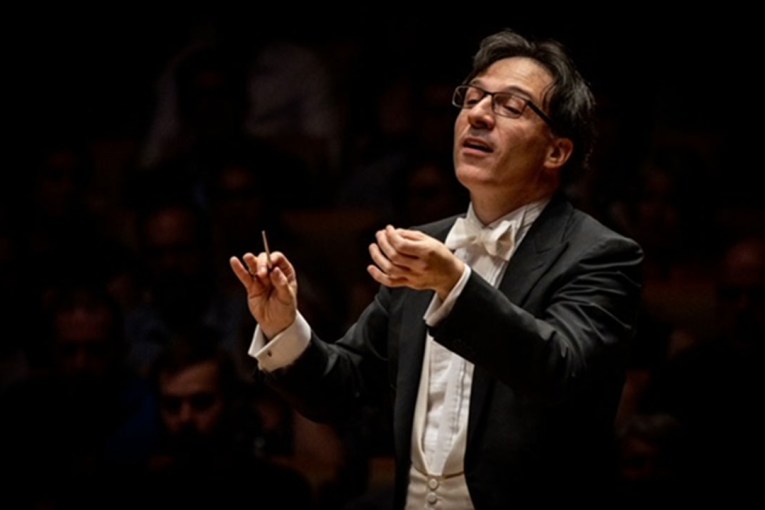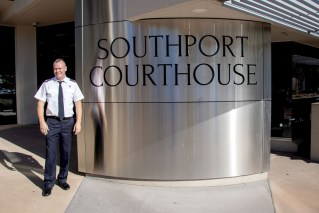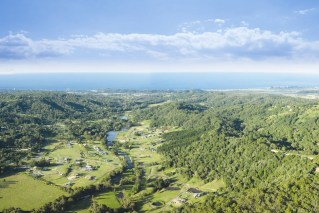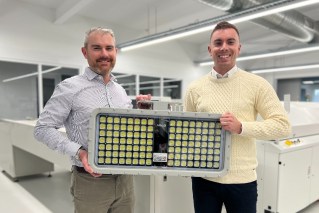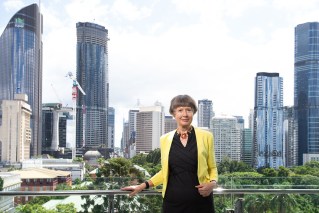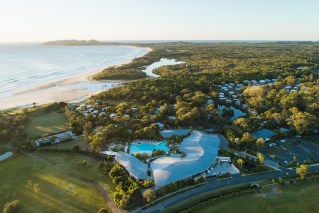
Going for gold: Why every Brisbane business will win from 2032 Olympics
And the winner is… Brisbane? Urban thinker and futurist James Tuma says a triumphant 2032 Olympics bid would set up local businesses for success and put Brisbane in the driver’s seat for an unprecedented decade of investment activity.
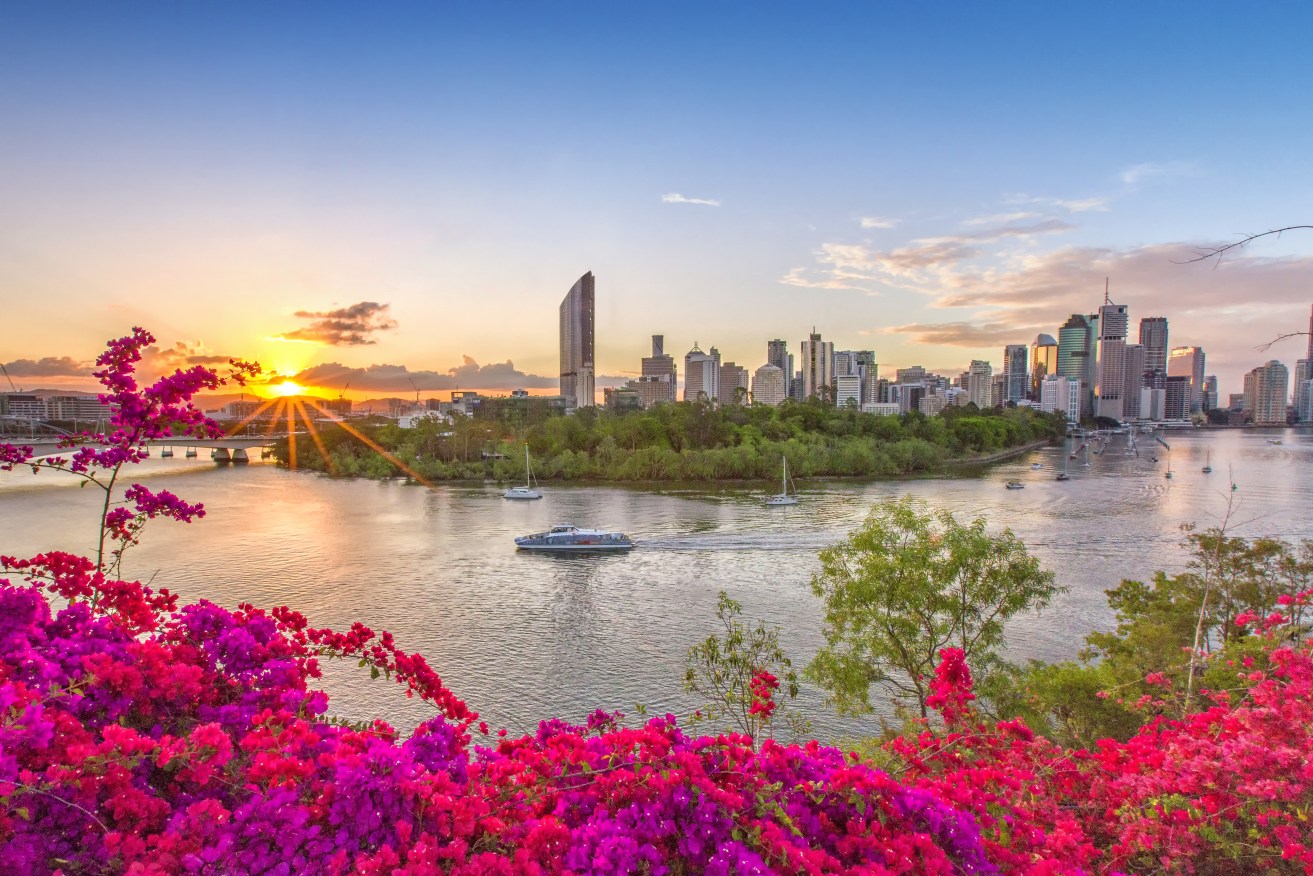
Brisbane is the prohibitive favourite to secure the 2032 Olympic and Paralympic Games, after the International Olympic Committee (IOC) gave the city ‘Preferred Bid Status’ last month. Brisbane could be named the winner as soon as July, ahead of the Tokyo Olympics.
Urbis group director James Tuma – a strategist, urban thinker and advocate for sustainable cities who played a key role in master planning the Queen’s Wharf redevelopment – says that the potential benefits of hosting the Games are more significant than many people realise.
“People often miss this, but the real benefit of hosting the Games isn’t the two weeks of competition,” Tuma said. “The event itself is what it is – it puts the city and the region’s brand out there, which is obviously important. But it’s the decade of investment and activity in the lead-up to the Games that’s actually worth billions of dollars.
“The simple act of bidding immediately elevates Brisbane, in a global sense. We are now firmly and irreversibly on the radar of a lot of people, and if the bid is successful, interest in Brisbane will only grow over the coming decade. That’s what we’ve consistently seen in other Olympic cities – it’s years out from the event that you actually start to see big spikes in interest from an investment point of view and a tourism point of view.
“It’s not about waiting 12 years for a 16-day event. The opportunities will be there long before then – the rising tide will lift all boats, and a decade of global enthusiasm and confidence around Brisbane will provide opportunities across a multitude of sectors.”
In its Value Proposition Assessment of 2019, the Queensland Government’s 2032 Taskforce estimated the economic benefits of the Games at around $7.4 billion, with “social and community benefits” for Queensland lasting potentially two decades.
Of course, much has changed since 2019. But Tuma said the Games – which would be spread across South East Queensland, with training centres and competition hubs planned for regions other than Brisbane – could play a key role in both the state and the city’s post-COVID economic recovery.

James Tuma. (Image: Supplied)
“I would encourage local business owners to think about what a regionalised Olympics would look like,” he said. “I’d encourage them to consider the opportunities for food, entertainment, tourism, experiences and accommodation, and to ensure their businesses are agile enough to be able to seize those opportunities as they emerge.
“Different cities throughout history have chosen different legacies for their Olympics, consciously or not. But the obvious legacy for a regional Olympics would be the connectivity between venues in Brisbane, the Gold Coast, the Sunshine Coast, Toowoomba, Ipswich, Logan and so on, which then plays out as an economic infrastructure for the region, around which further development can occur. It’s almost like defining a future skeleton for the region.”
The industries on the starting blocks
Tuma expects certain industries to get an immediate boost from a successful Olympics bid, starting with the events sector.
“What you often find in cities that are set to host the Olympics is that other, smaller international sporting competitions bring their events to the city in the lead-up to the Games,” he said. “So that’s going to provide opportunities in the events and entertainment space, long before the Olympic opening ceremony.
“I think we’ll see a real resurgence in arts and culture. There’s no better sector to celebrate the brand of a city and to solidify a sense of public sentiment in the lead-up to what is still one of the most significant events on the international calendar.
“Tourism will be on a slow road to recovery, but I think Brisbane will soon be the beneficiary of quite a bit of domestic tourism. That’ll be linked to how well we’ve handled COVID-19, but it will also be linked to the build-up to the Games.
“And of course, if we can get international students back into the country… there’s a lot of complexity around that because there are decisions that have to be made by the Federal and State Governments, but with how well Brisbane has responded to COVID, all of our usual climatic benefits, a real estate market that has probably been a bit undervalued, and an Olympics on the horizon, I would expect we might get the jump on Melbourne and Sydney in the international student market.”
Tuma said that major transport infrastructure projects, including Cross River Rail and Brisbane Metro, will help to “change the face of the city” in the lead-up to the Games.
He also said the establishment of the Brisbane Business Hub, a dedicated space in the Queen Street Mall for business owners to collaborate and learn new skills, as an example of the type of innovation needed to take advantage of a pre-Olympic influx in investment.
“The flexible working trend is here to stay, which is fantastic for the revitalisation and renewal of our local neighbourhood centres, but the CBD is still so important,” he said.
“Good things happen when you get people together to share a common culture, to innovate, to grow knowledge and create new technology. Logically, the place for that to happen is in the CBD.
“I think the Brisbane Business Hub is a fantastic idea. Anything that can help small businesses and start-ups to grow and scale up is part of creating a potent economic ecosystem, and it’s the sort of thing we need to be doing to create a really vibrant city and a thriving CBD.”
James Tuma recently jumped On the Couch at the Brisbane Business Hub to speak about the future of Brisbane and why now is the time for the city to be bold. Catch up on the recap here.
Coming up at the Brisbane Business Hub, pioneering Vita Group CEO Maxine Horne will hit the Couch on Thursday 22 April to share the story of how she grew a single store into an ASX-listed brand worth in excess of $600 million; how to put yourself out there and build a personal brand; pivoting her entire 1600-member team in the midst of COVID; and the power of connections and networking. Register for the free session with Maxine here.
On Wednesday 26 May, Don Meij – Group CEO and Managing Director of Domino’s, and one of Australia’s most acclaimed and awarded entrepreneurs and business leaders – will share his journey from pizza delivery driver to the head of Australia’s largest and first publicly-listed pizza chain; and discuss the opportunities for Brisbane’s food and beverage landscape in FY22 and beyond. Register for the free session with Don here.
